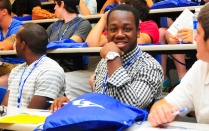Students on the Job Market 2025-26
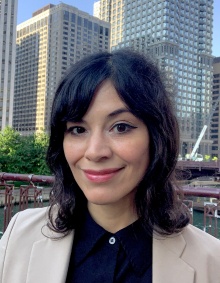
Gabriela Ceja Morales
Email: gcejamor@buffalo.edu
Dissertation: “The Production of Eco-Chic Tourism: Green Enclavization, Racialized Occupational Segregation and the Paradoxes of Tourism Expansion in the Mexican Caribbean”
Committee: Jordan Fox (Chair), Erin Hatton, Robert Adelman
Research Areas: Urban and Environmental Sociology; Tourism, Leisure and Culture; Work and Migration.
Short Bio: Gabriela Ceja is a PhD candidate at the University at Buffalo. She examines the production of urban space and the socio-environmental inequalities of industrial development. Using qualitative research methods, she examines the narratives, aesthetics, forms of privatization and exclusion of "eco-luxury" enclaves in the Mexican Caribbean; as well as the forms of racialization and environmental injustice endured by tourism migrant workers. Gabriela has also worked as a labor organizer in the New York City area, where she produced numerous art and education projects with diverse communities.
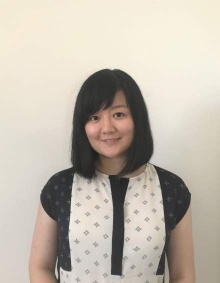
Shiyue Cui
Email: shiyuecu@buffalo.edu
Dissertation: “Making It Work Here”: Mixed Methods Research about Refugee Employment, Family Dynamics, and Gender Roles”
Committee: Robert Adelman (chair), Kristen Schultz Lee, Yige Dong, Wooksoo Kim
Research Areas: International Migration, Environmental Sociology, Race and Ethnicity, Criminology, Gender and Family, Urban
Shiyue Cui is a Ph.D. candidate in the Department of Sociology and Criminology at the University at Buffalo. Her research focuses on international migration, environmental sociology, and social inequality. Her dissertation combines quantitative data analysis with qualitative interviews to comprehensively examine refugees' resettlement experiences in New York State. Her research demonstrates that family and gender practices play a crucial role in shaping their employment prospects and cultural capital accumulation. Additionally, Shiyue investigates displacement, mobility, and population dynamics among vulnerable communities. She also uses algorithms to analyze post-disaster mobility with large mobile phone data.
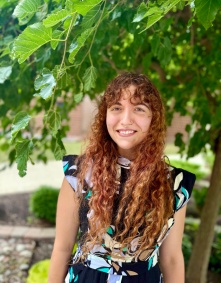
Kathleen D'Alfonso
Email: krdalfon@buffalo.edu
Dissertation: “Health Insurance Across the Transition to Adulthood”
Committee: Ashley Barr (Chair), Hanna Grol-Prokopczyk, Debi Street
Research Areas: Medical Sociology; Teaching and Learning; Life course; Deviance; Quantitative Methods
CV: Kathleen D'Alfonso's CV
Kathleen D'Alfonso is a PhD candidate in the Department of Sociology and Criminology who has extensive experience teaching both in person and online, specifically having served as the instructor of record for 17 courses with class sizes ranging from 21 to 75 students. Kathleen's commitment to teaching mentorship has led to invitations to present at TA orientations, lead campus workshops, and speak on the Teaching Table Podcast at the University at Buffalo. Through these efforts, she has sought to cultivate communities of practice that extend the impact of inclusive pedagogy across departments and institutions. Simultaneously, Kathleen's research interests are focused on health insurance status across the life course with particular attention in the dissertation on the transition to adulthood. She additionally has a working paper investigating whether the association between insurance status (being privately, publicly, or uninsured) and two dimensions of health varies by nativity and citizenship.

Chandler Fairbanks
Email: cnfairba@buffalo.edu
Dissertation: “Overlooked: Understanding Bisexuality in the Context of Family and Romantic Relationships”
Committee: Ashley Barr (Chair), Mary Nell Trautner, Kristen Schultz Lee
Research Areas: Sexuality, Gender, Family, Health & Well-being, Research Methods
CV: Chandler Fairbanks' CV
Chandler Fairbanks is a Ph.D. candidate in the Department of Sociology and Criminology at The University at Buffalo. He is currently working on his dissertation, which investigates the health and well-being of sexual minorities in romantic relationships. He is specifically interested in understanding those who typically remain understudied in scholarly work on the queer community, such as individuals who identify as bisexual. He is also working on a range of collaborative projects investigating relationship quality and health within interracial couples, the impact of adult offspring stressors on parental cognitive functioning, and how orientations toward marriage predict risk-taking behaviors across the transition to adulthood. In addition to this research program, Chandler also teaches Basic Statistics for Social Scientists, where he is dedicated to helping students understand how statistical methods are used within the discipline and providing hands-on experience with coding software. His work on sexual minorities in romantic relationships won the Nathalie Devine Howe Award for Outstanding Scholarship.

Rui (Zoe) Huang
Email: rhuang27@buffalo.edu
Dissertation: “That which does not kill us makes us stronger? Understanding the impacts of early-life experiences on later-life pain”
Committee: Hanna Grol-Prokopczyk (Chair), Ashley B. Barr, Kristen Schultz Lee, Zachery Zimmer
Research Areas: Population Health, Medical Sociology, Demography, Quantitative Methods, Chronic Pain
CV: Zoe Huang's CV
My research seeks to understand social drivers and consequences of chronic conditions, with a special focus on chronic pain. My projects include an analysis on the effects of chronic pain on social relationships, a macro-level examination of 50 years of scholarship on pain-related inequalities across sociodemographic groups, and establishing a framework for analyzing social determinants and consequences of pain at individual, interpersonal, and macro levels. Additionally, I explore how divergent macro-sociopolitical and cultural contexts shape health inequalities across the globe. My research reveals that pain prevalence and educational disparities in pain vary substantially across U.S. states, and that cross-state variations are a function of state-level income inequality and social cohesion. Beyond the U.S., I also study health inequalities in non-Western contexts. I demonstrated that the critical cultural meanings embedded in smoking and alcohol use in China contribute to high prevalence and attenuated social gradients in unhealthy health behaviors and health outcomes (published in SSM-Population Health). My dissertation continues my inquiries aforementioned with the life course perspective. My first paper argues that wartime trauma is a strong but overlooked predictor of ill health, particularly in Asian countries. I find that war exposures contribute to strikingly high risks of pain through “psychological scarring” process among older Vietnamese. My second paper examines whether socioeconomic deprivation leads to cumulative stress exposures throughout the life course, ultimately resulting in a higher risk of pain in later life in the U.S. My third paper studies the effects of welfare states. It explores to what extent welfare regimes affect the strengths of the association between socioeconomic adversities in childhood and later-life chronic pain.
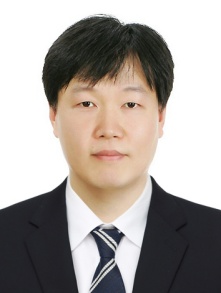
Byung Soo Lee
Email: byungsoo@buffalo.edu
Dissertation: “The Perceived Meaning of Eldercare among the Sandwich Generation of Adult Koreans and Korean Immigrants in the United States”
Committee: Kristen Schultz Lee (chair), Robert Adelman, Debra Street
Research Areas: Sociology of Family, Aging and the Life Course, Immigration, Gender, Immigration, Race and Ethnicity, Sociology of Education
CV: Byung Soo Lee CV
Short Bio
Byung Soo Lee is a PhD candidate in the Department of Sociology and Criminology at the University at Buffalo, SUNY. His research focuses on how Asian immigrant families in the United States experience the changes of family relations and the narratives of the families that reveal the gap between the subjective perception of family relations and the structural changes in a given society. His current research examines how Asian immigrant family members interpret the meaning of eldercare with the intersection of gendered experiences.
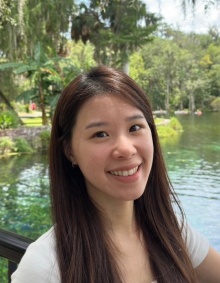
Ting-Hui Lin
Email: tlin53@buffalo.edu
Dissertation: “How Area-Level Social Vulnerability, Political Leanings, and Governmental Healthcare Initiatives Shaped Adult Covid-19 Vaccination Rates in the U.S.”
Committee: Hanna Grol-Prokopczyk (chair), Ashley Barr, Debra Street
Research Areas: Medical Sociology, Social Inequality, Political Sociology, Aging and the Life Course, Disability Studies
CV: Ting-Hui Lin CV
Ting-Hui Lin is a Ph.D. candidate in Sociology at the University at Buffalo, SUNY. She is primarily a medical sociologist with a strong focus on social inequality. Her current research bridges political sociology, population health, and spatial demography, examining how structural vulnerabilities and political contexts shape disparities in COVID-19 vaccination uptake across the United States. Grounded in Fundamental Cause Theory and the Social Determinants of Health framework, her dissertation employs multilevel modeling across counties and states, integrating spatially referenced indicators from the Social Vulnerability Index (SVI) and measures of local healthcare infrastructure to analyze geographic variation in COVID-19 vaccination uptake. Her previous work, grounded in disability studies, investigated how visually impaired individuals in Taiwan use guide dogs as tools for mobility and autonomy. This research was recognized with the Outstanding Thesis Award in Disability Studies from the National Taiwan Library.
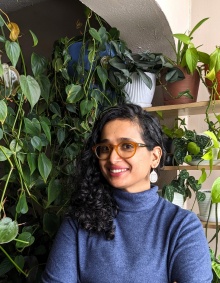
Anupriya Pandey
Email: apandey8@buffalo.edu
Dissertation: "Critical Caste Ecologies: How Toxic Agrochemicals and Green Technologies Co-Produce Infrastructures of Caste"
Committee: Jordan Fox (Chair), Erin Hatton, Lourdes Vera, Malini Ranganathan
Research Areas: Environmental Sociology, Theory, Ethnography
CV: Anupriya Pandey's CV
Short Bio
Anupriya Pandey is a PhD candidate in the Department of Sociology and Criminology at the University at Buffalo, SUNY. Her research engages environmental sociology, critical social theory, and comparative racial and ethnic studies, with a specific focus on caste, labor, and agrarian political ecologies in South Asia. Anchored in long-term ethnographic fieldwork and historical-archival research in Bihar, India, her dissertation develops the framework of Critical Caste Ecologies to examine how caste hierarchies are materially and institutionally reproduced through everyday infrastructures such as agrochemical shops and solar irrigation systems. She investigates how caste-based claims to land, labor, expertise, and legitimacy are reconfigured amid the expansion of chemically intensive farming and climate resilience interventions. More broadly, she is interested in how agrarian livelihoods, ecological degradation, and caste intersect to shape socio-environmental hierarchies and produce differentiated vulnerabilities.
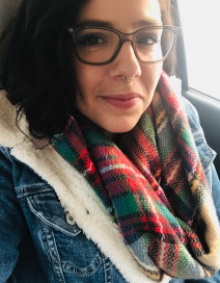
Maggie Rex
Email: mrex@buffalo.edu
Dissertation: “Bound to Fail: Understanding the Experiences and Limitations of Kin Navigating Rightwing Extremism of Adult Loved Ones”
Committee: Mary Nell Trautner (chair), Ashley Barr, Erin Hatton, Allison Dwyer Emory
Research Areas: Political Sociology, Social Movements, Sociology of Family, Social Stratification
I am a political sociologist and qualitative researcher. I am broadly interested in the intersections of political extremism, state power, social movements and social ties. My dissertation research examines the ways that the state-abdicated responsibility to address rightwing extremism has left kinship networks to do the work of addressing radicalization in ways that are bound to fail. In particular, my research looks at the growing phenomenon of middle-aged and older extremists, and how family dynamics and historical and structural barriers, such as rightwing media and the Covid pandemic, impact the efforts of adult children, nieces, nephews and lifetime friends as they labor to combat the radicalization of their loved ones. I also have several law and society and criminology projects in development, examining rural vs urban juvenile delinquency trends over time, the legal consciousness of parents of children with preventable birth injuries, and prosecutors perspectives on the impact of body-worn cameras on the adjudication of domestic violence cases.
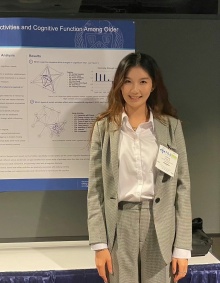
Chang (Rita) Yu
Email: cyu33@buffalo.edu
Dissertation: "Understanding Cognitive Aging in China: Cognitive Measures, Life Course Factors, and Historical Contexts"
Committee: Hanna Grol-Prokopczyk (Chair), Ashley B. Barr, Kristen Schultz Lee, Alden Gross
Research Areas: Aging and life course, social demography, cognitive health, chronic pain, data harmonization, causal inference, large language model (LLM) and scoping review method
CV: Rita Yu's CV
Short Bio
My substantive research centers on life course and aging, with a particular focus on how the timing of historical events shapes cognitive aging and how factors from childhood and midlife influence later-life cognitive outcomes. I also investigate the role of chronic pain and its various dimensions of interference in contributing to cognitive function. Methodologically, my work includes: (1) using measurement models to assess the validity and reliability of cognitive measures over time; (2) applying causal inference approaches, such as propensity score models, to examine selection effects within productive aging theory; and (3) evaluating the validity of large language models for data extraction in scoping reviews across diverse questions and article types.
Please see more details via https://sites.google.com/view/changritayuubsociology/home

